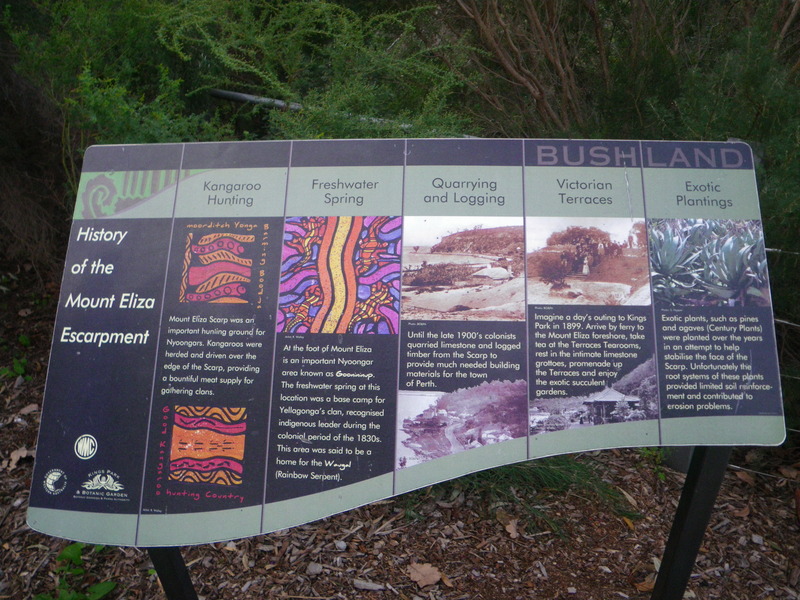
I had never been in Australia before, and this is the Southernmost place I've ever been. I haven't seen the Southern Cross yet, but if the sky clears and it is not too cold, I will look for it.
Perth keeps reminding me of Boston -- fairly wide open spaces, lots of suburb, nice rivers. The view from South Perth across the Swan river to Perth reminded me of the view across the Charles river from Cambridge to Boston, though the Swan river is bigger. Perhaps it is also the weather, cool, clear, and with some wind.
In many other respects, Perth is unlike any other place I've been. In every park I have seen, the soil seems sandy, sometimes with small pebbles. The only rocks seem to be the foundation of the several hills, one of which is downtown Perth, and another is beautiful King's park on Mt. Eliza.

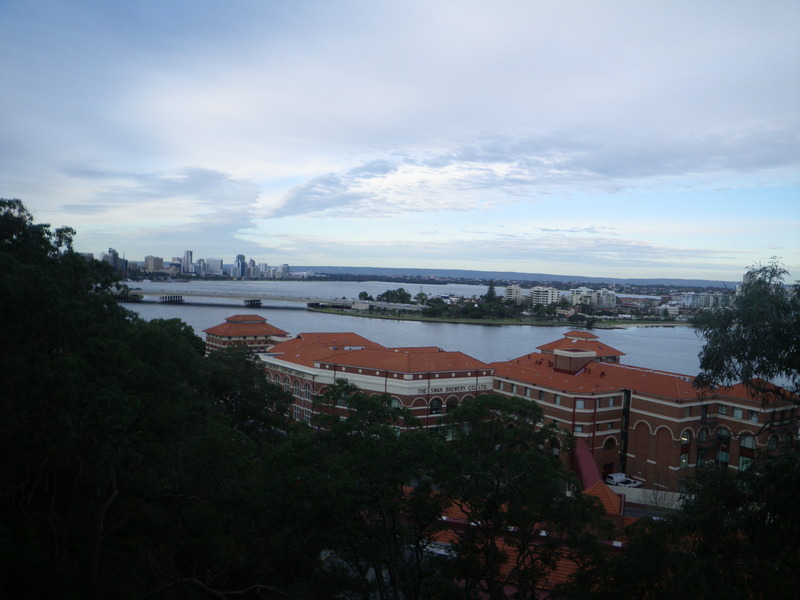
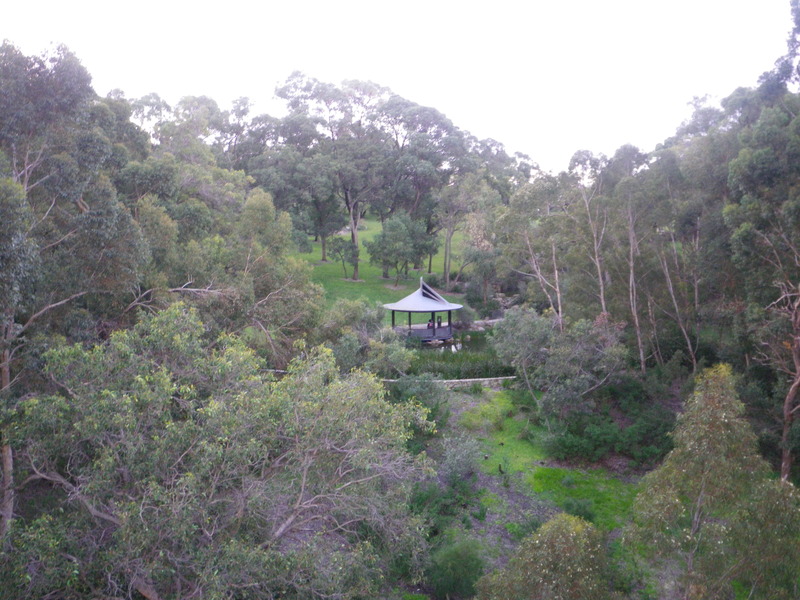
King's park includes a nice botanical garden (free entrance -- it is part of the park) with good exhibits of native plants of Southwest Australia all the way to the Kimberleys (which seem rather North to me). Famous in the Kimberleys is the Boab tree (Adansonia gregorii, or Jumulu), named after and distantly related to the South African Baobab tree. Millions of years ago, Southern Africa, Madagascar, and Australia were all joined together in a supercontinent named Gondwana. The Boab drops its leaves during the dry season, which is unusual for Australian plants.
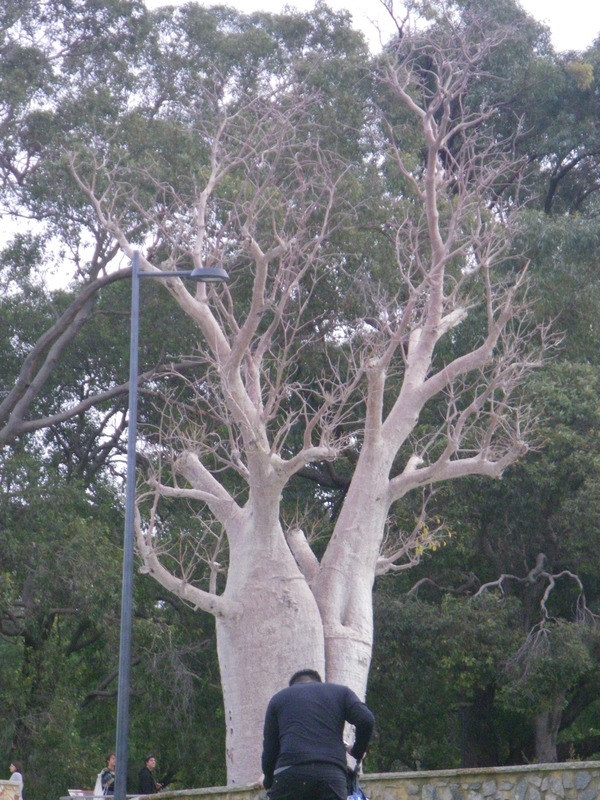
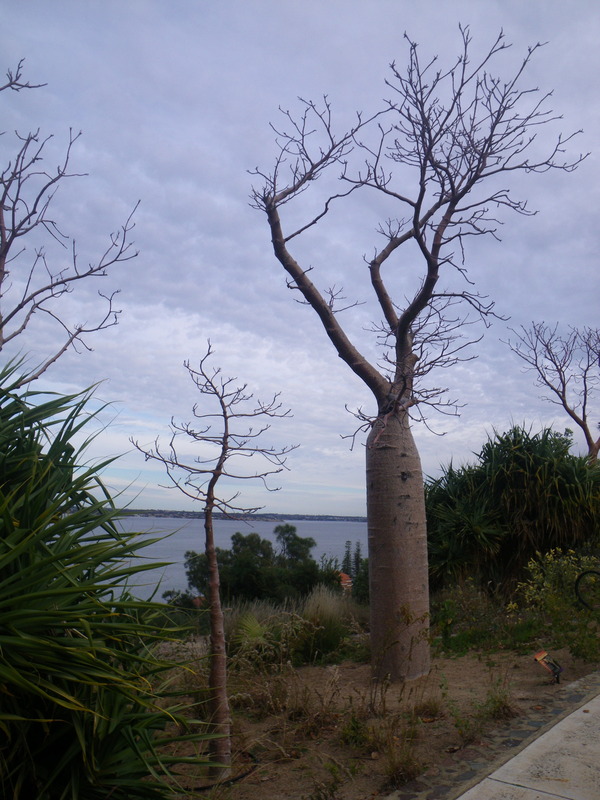
In any case, it is wonderful to be in the part of the world where Eucalyptus tree actually belong, rather than being imported and all too often invasive. In South Perth I found this paperbark tree wetland. Paperbark is related to Eucalyptus. It is a wonderful tree, but a little too common in Honolulu for my taste. Here I was very happy to see it in something close to its natural environment.
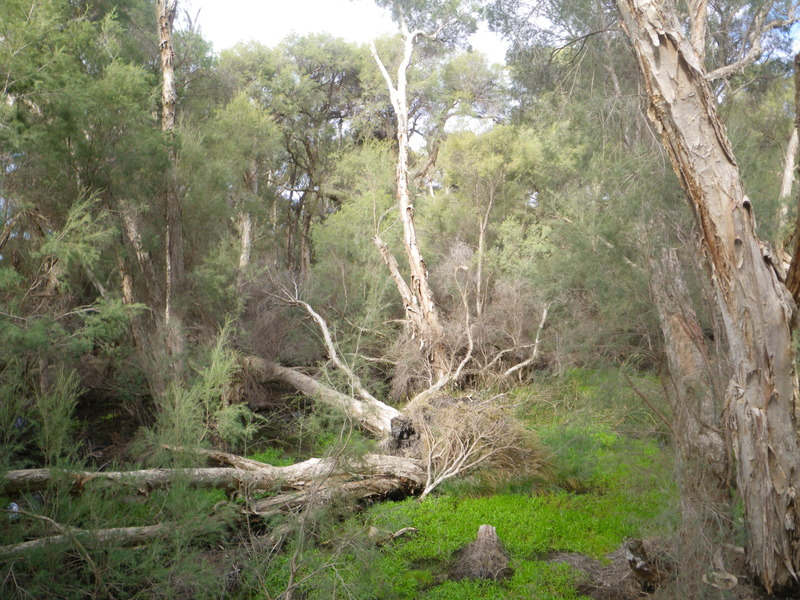
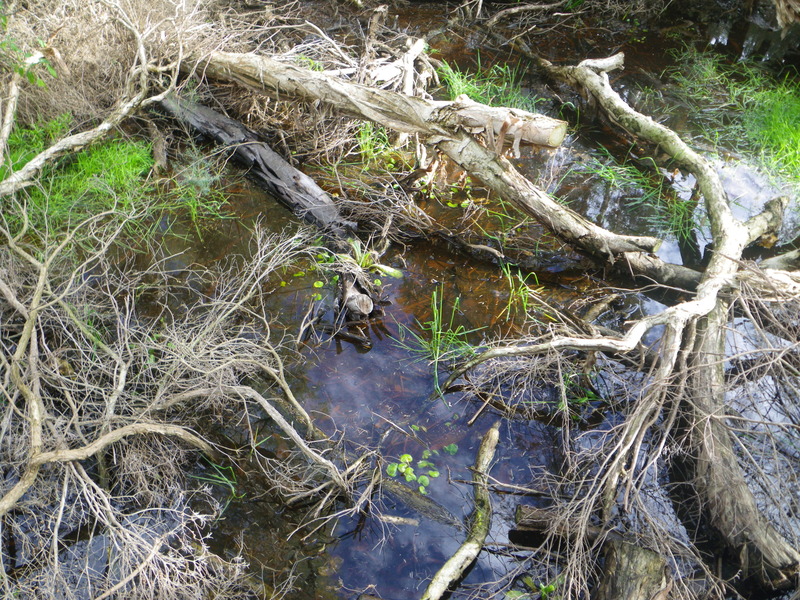
The sign said the water level rises and falls depending on the season, and this is important for these paperbark trees.
I also saw a number of birds, including a native black and white magpie, seabirds, and another bird I did not identify. The red spot on the throat is part of the bird in the last picture. Except perhaps in zoos, I don't believe I have seen any of these birds before.
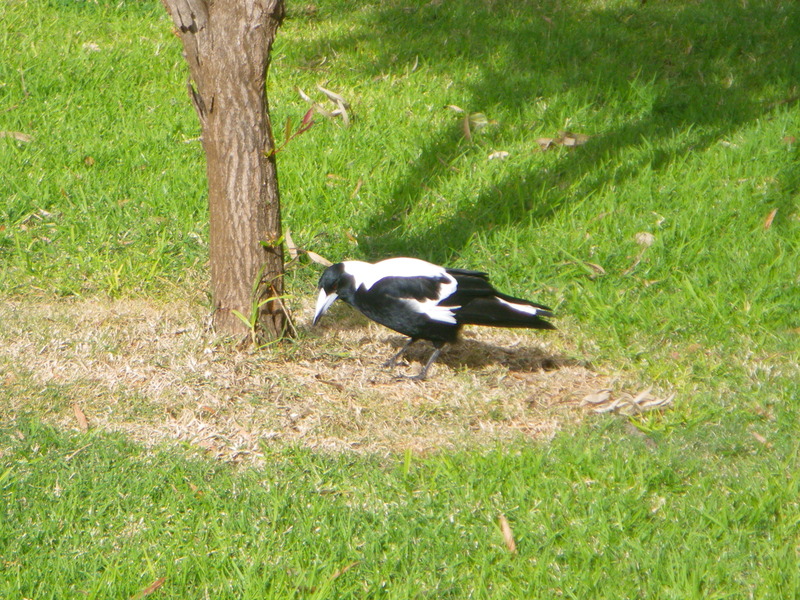
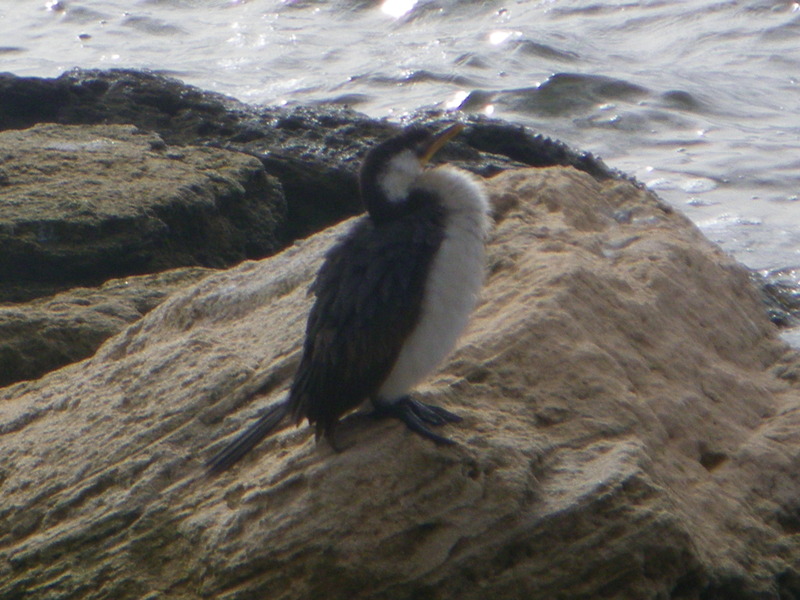
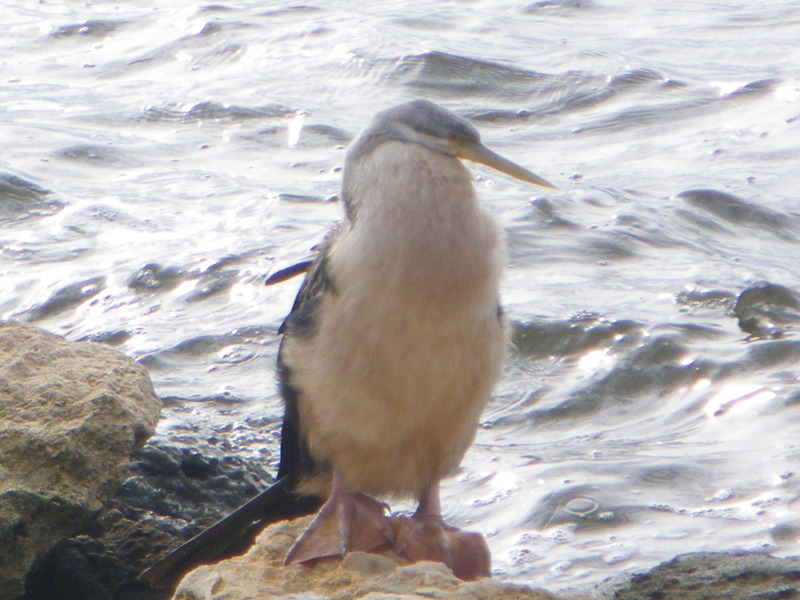
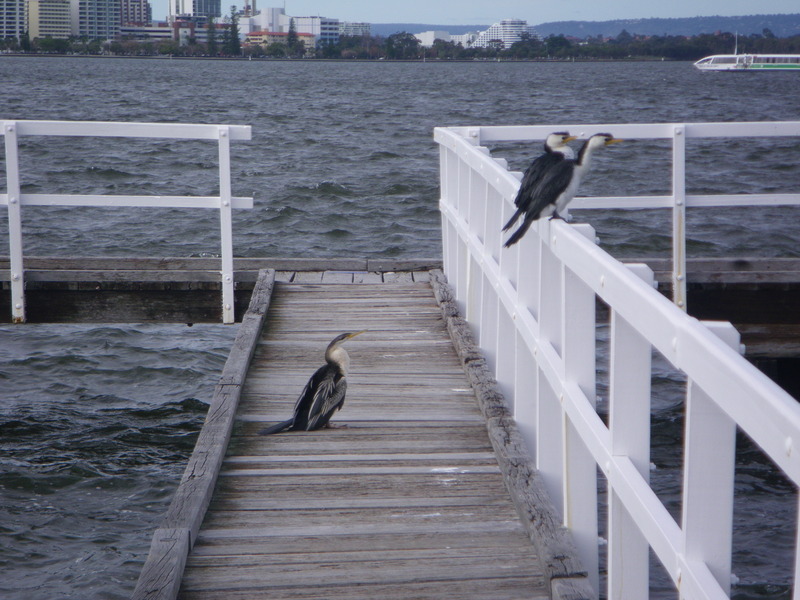
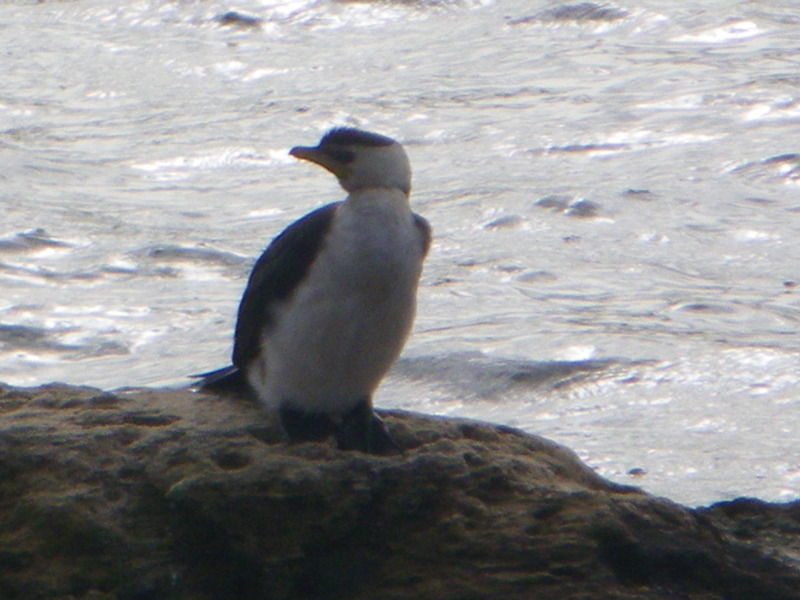
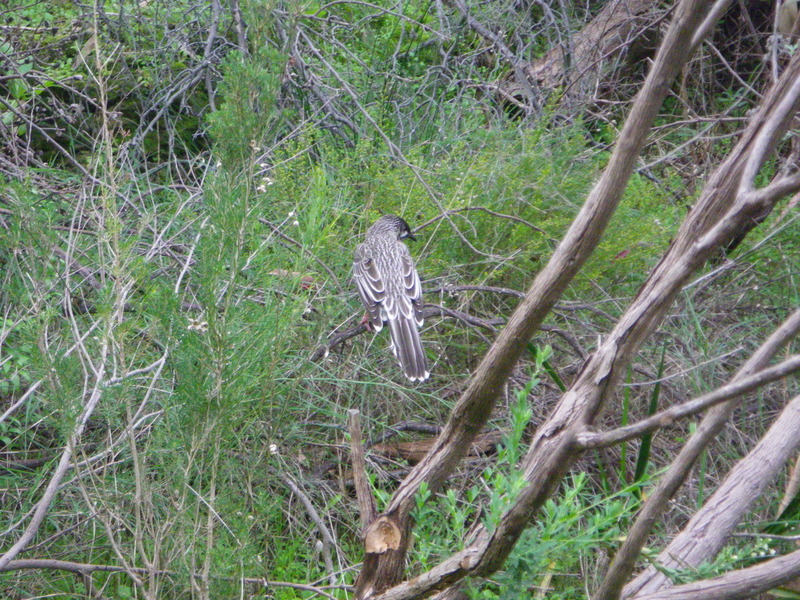
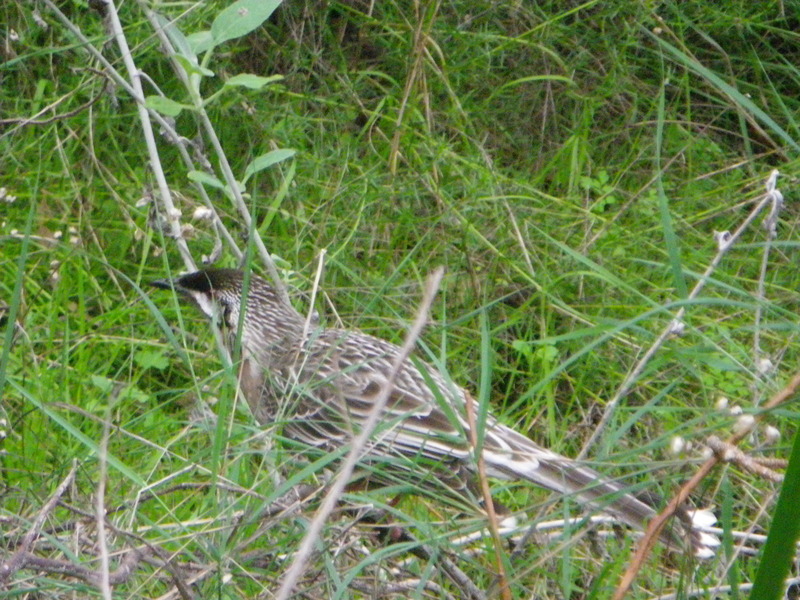
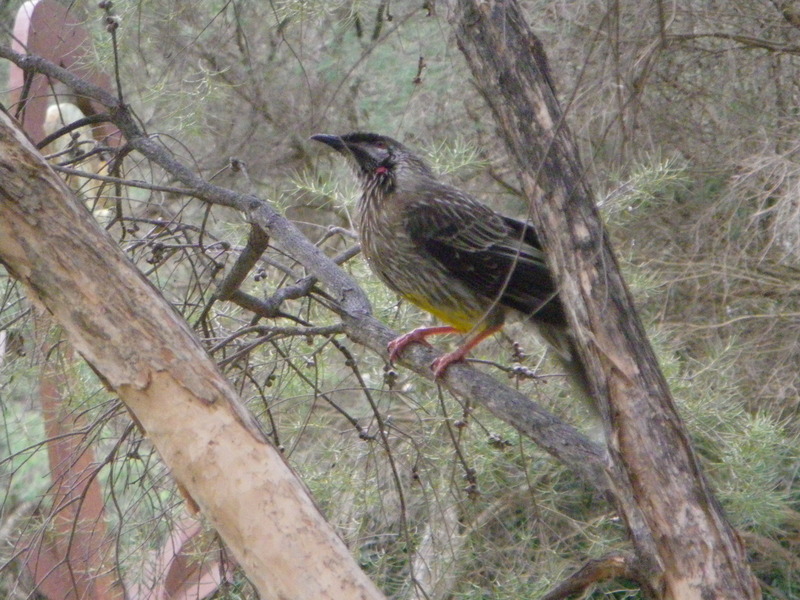
The botanical garden in King's Park had an excellent section filled with endangered species, and enlightening and sometimes funny labels describing them.
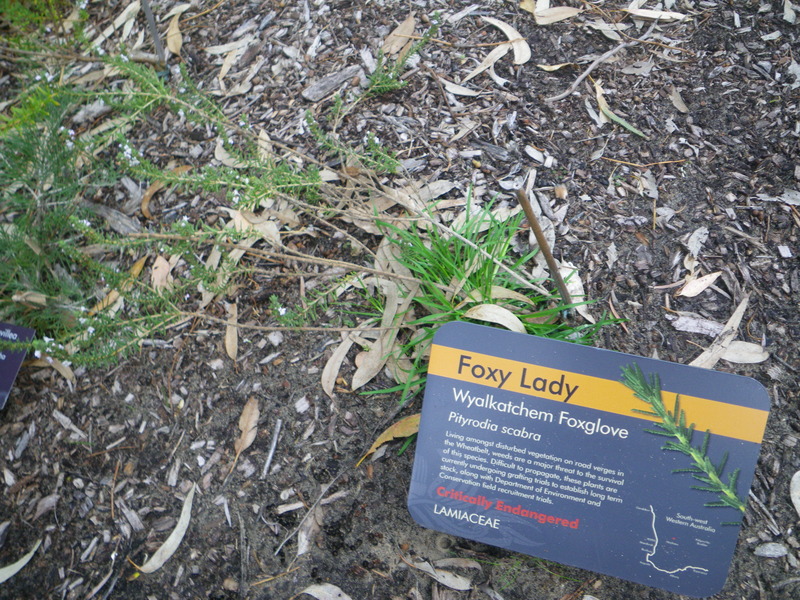
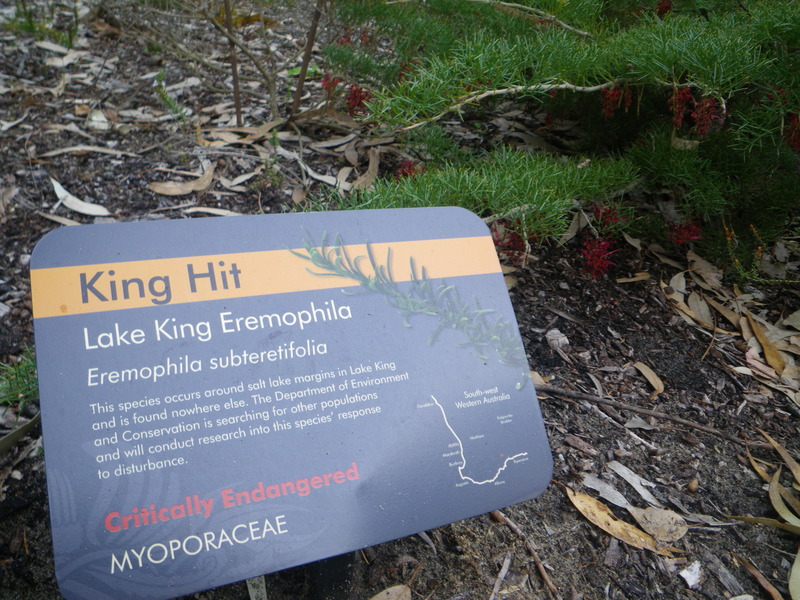
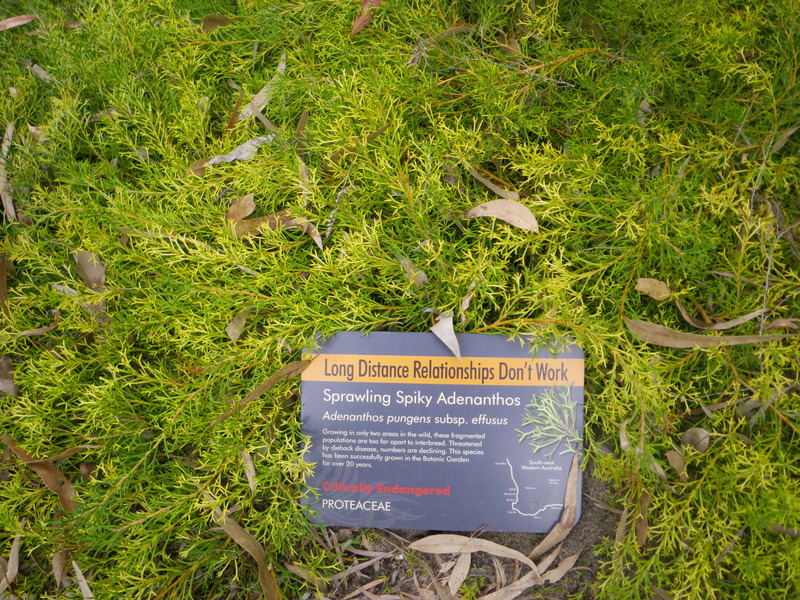
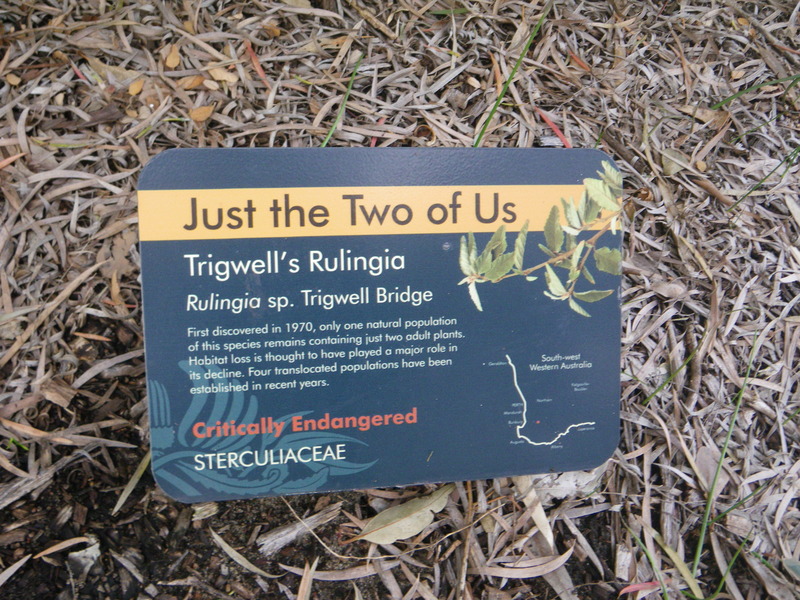
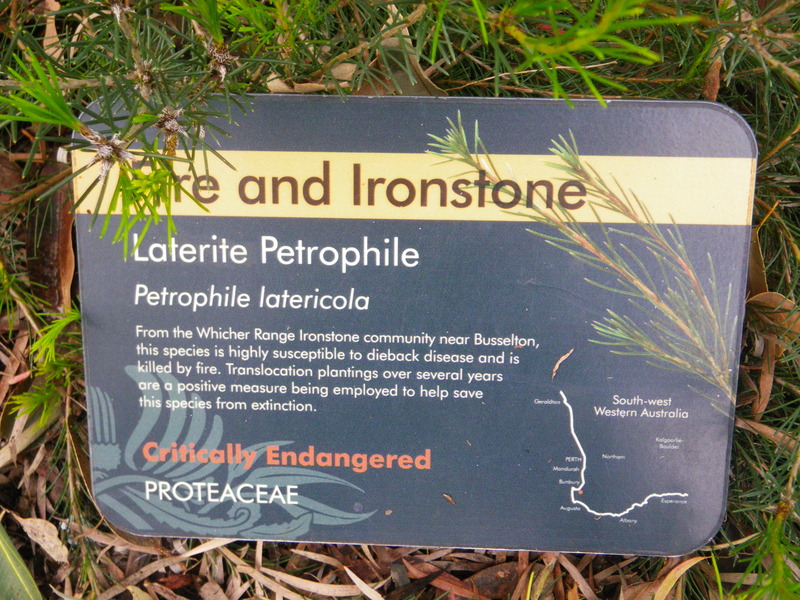
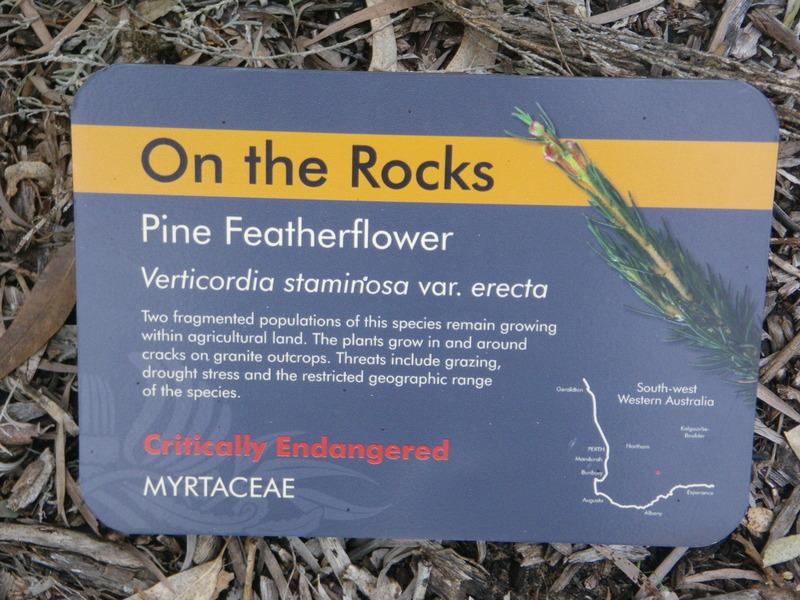
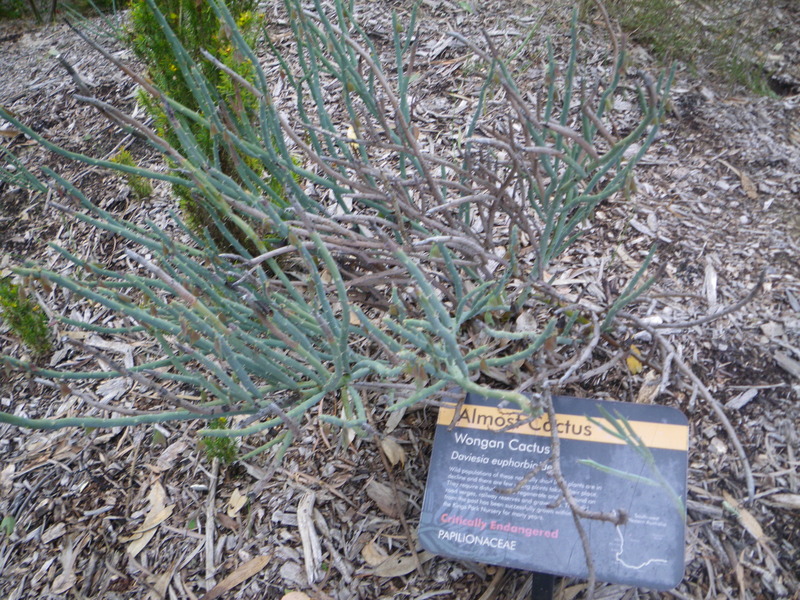
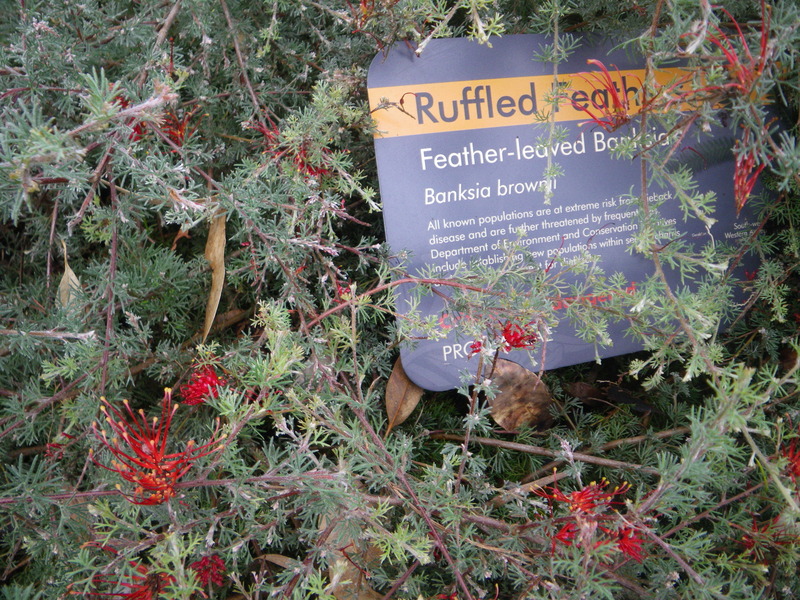
The other place I visited today is the bell tower, which is by the Swan river and holds bells from St. Martin's in the Field in London.
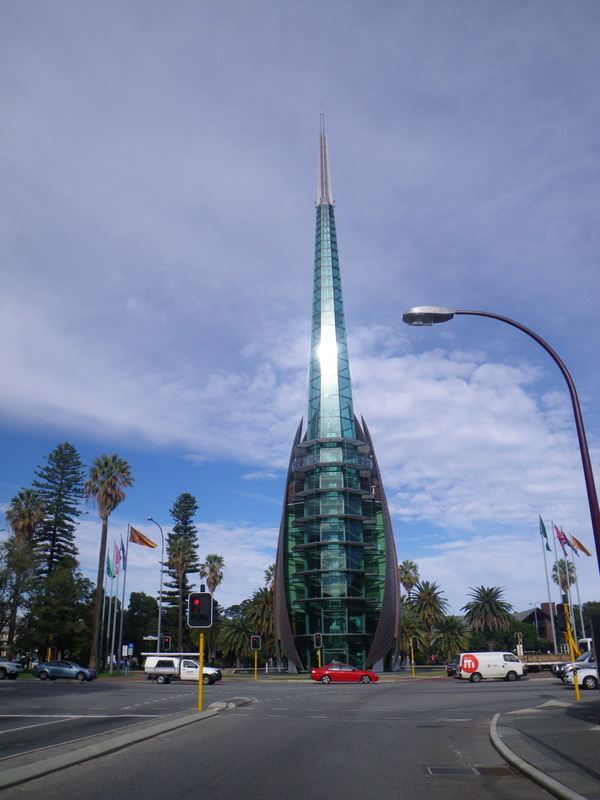
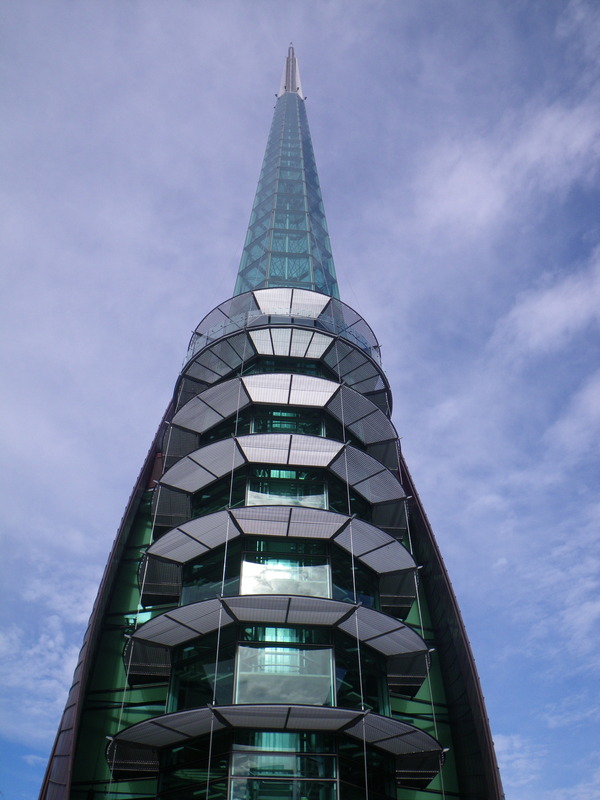
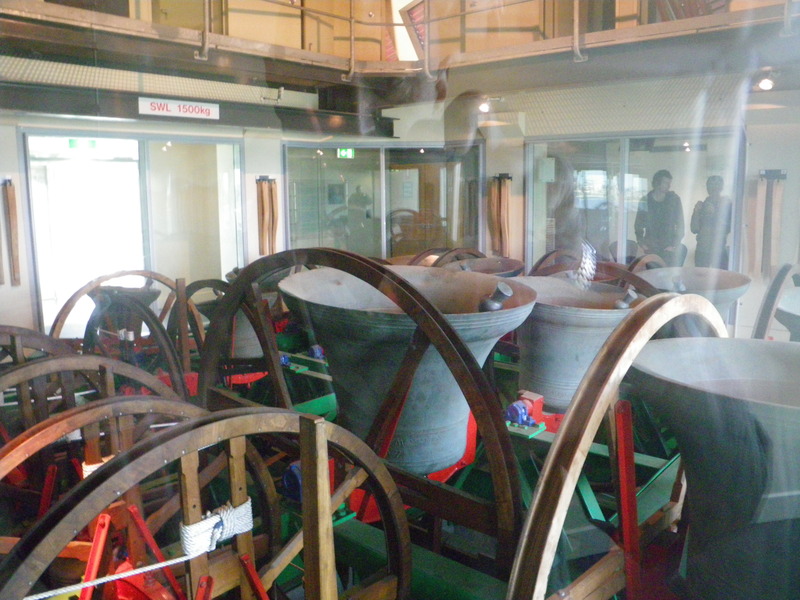
The bells are set up for change ringing, which is a style of bell ringing common in England and practiced in a few other English-speaking countries. I was introduced to it in Boston, where a neighbor of mine practiced it in one of the historical churches in Boston, Old North Church if I am not mistaken.
In change ringing, many bells, each with a different tone, are rung in a well-defined sequence. The sequence changes over time, hence the name of change ringing. It makes for a somewhat different sound than any other kind of bell ringing, and change ringers are very proud of their art. One sign in the bell tower proclaims it to be "the world's largest musical instrument". Should you be interested in sponsorship, the bell tower is looking for a donor to contribute a new bell that will weigh more than 2 tons (only 12 of the 18 bells are from England, the rest are new).
In any case, for change ringing, each bell is mounted on a wheel which is allowed to rotate a little more than 360 degrees, so normally a bell is "stood" with the opening upwards. By pulling on a rope, the bellringer (one per bell) can ring the bell and cause it to stand at the other end. The rope is tied so it is longer when the bell is in one standing position than when it is in the other position, so there are two spots where the bellringer pulls on the rope.
The other nice thing about the bell tower, which Perth built to celebrate the millennium, is the nice view of Perth from the top.
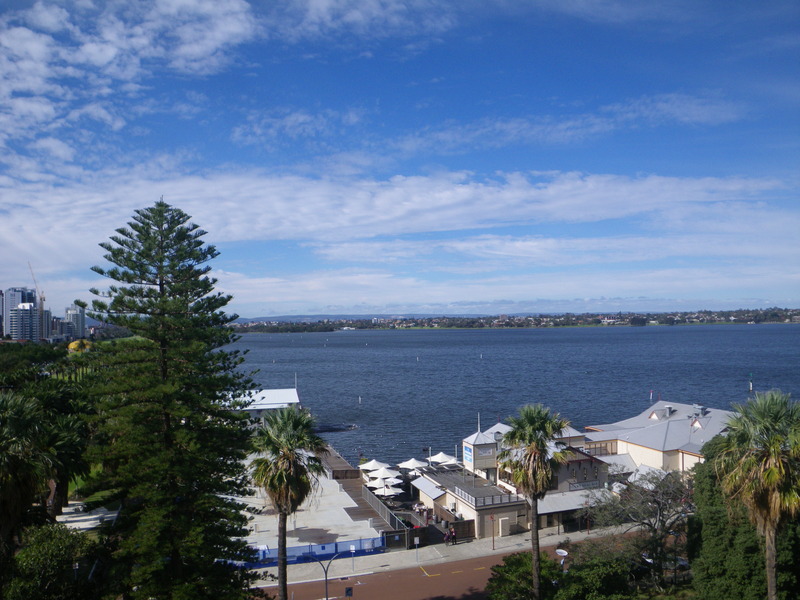
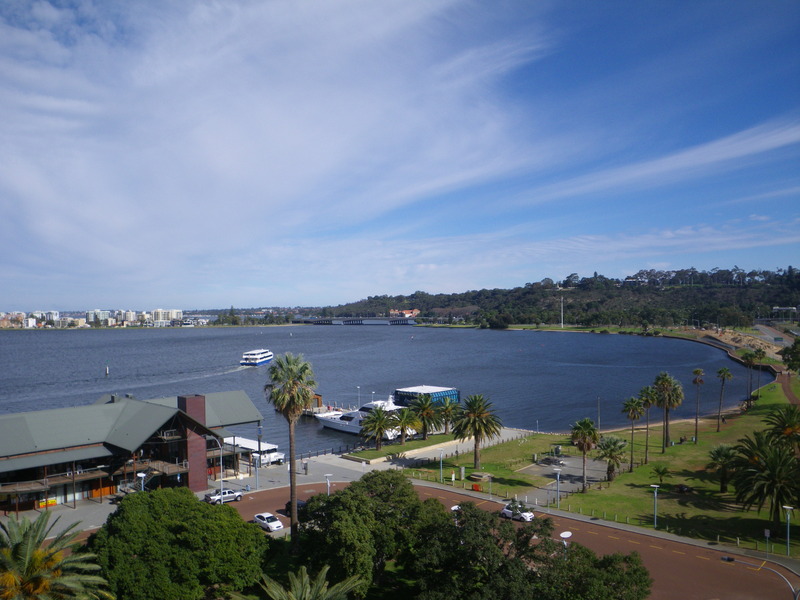
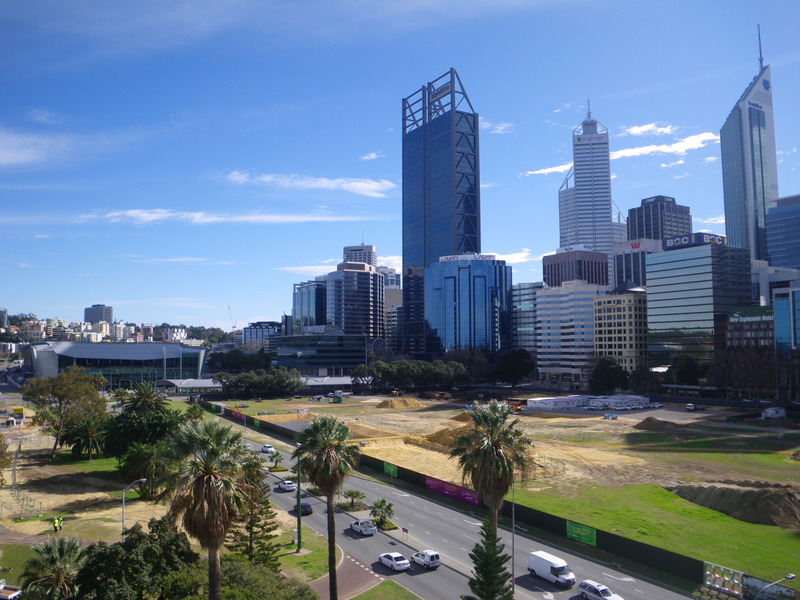
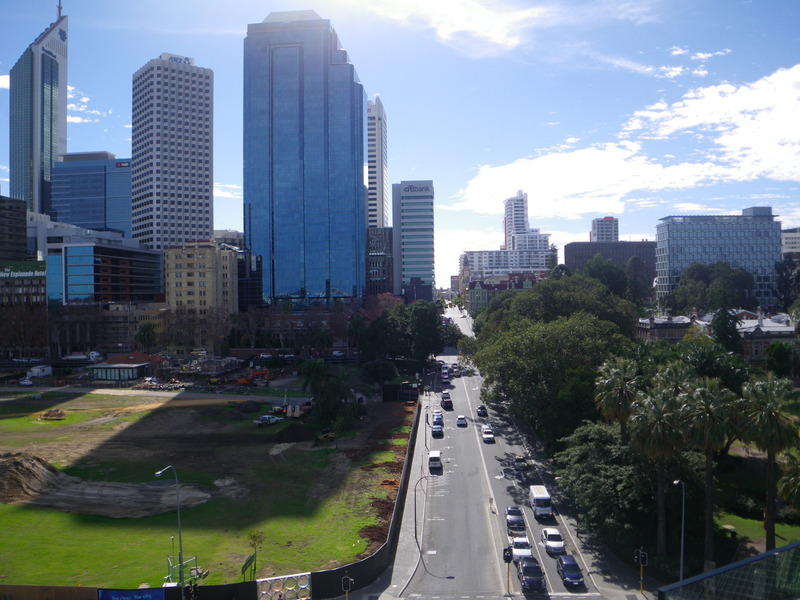
I observed many contrasts in going from Thailand to Perth. Some are as you might imagine. Perth is much more expensive than Thailand. The area is experiencing a boom thanks to mining, and so prices are high It is hard to find a meal for under $10 (the Australian dollar is currently worth about as much as the US$). Hotels tend to be quite expensive, with downtown hotels comparable to hotels in the good areas of Manhattan, NY.
The train in Perth was not as crowded at rush hour, and the streets look empty in comparison with Bangkok, which is notorious for its traffic. In Perth, drivers respect pedestrians on crosswalks, whereas in Bangkok cars have absolute right of way.
In Perth it is winter, and mild as the winter may be here, it seems quite cold to me, accustomed to living in Hawaii. Today I was wearing 4 layers and a hat. The days are short, though the sun is out and sometimes quite bright, so it warms up in the daytime.
Some contrasts are not as you might expect. Food here is more of the kind that is usually found in Western countries, but I definitely enjoyed the food more in Thailand. And while big cities in Thailand are not particularly clean, the litter around bus stops I saw here in seems considerably worse, even in the well-kept suburbs.
There are many other differences. In Thailand and Laos I have been visiting many old places, especially temples. There don't seem to be very many (or any) temples here, and nothing built is very old. Old buildings here might be 100 years old rather than many centuries old, as is true for some temples in Thailand.
In Perth take-out food seems to come in styrofoam, whereas in Thailand it mostly comes in small plastic bags, but sometimes it is wrapped in banana leaves.
I also find many similarities, most notably driving on the left, which I have to be careful about. There also seems to be a common "can-do" spirit, though Thailand seems considerably more enterpreneurial (many small businesses) than I have observed here so far.
Both Perth and Bangkok have modern, efficient, and clean train systems. In both places, people on the train seem a lot more interested in their mobile devices than in just about anything else...